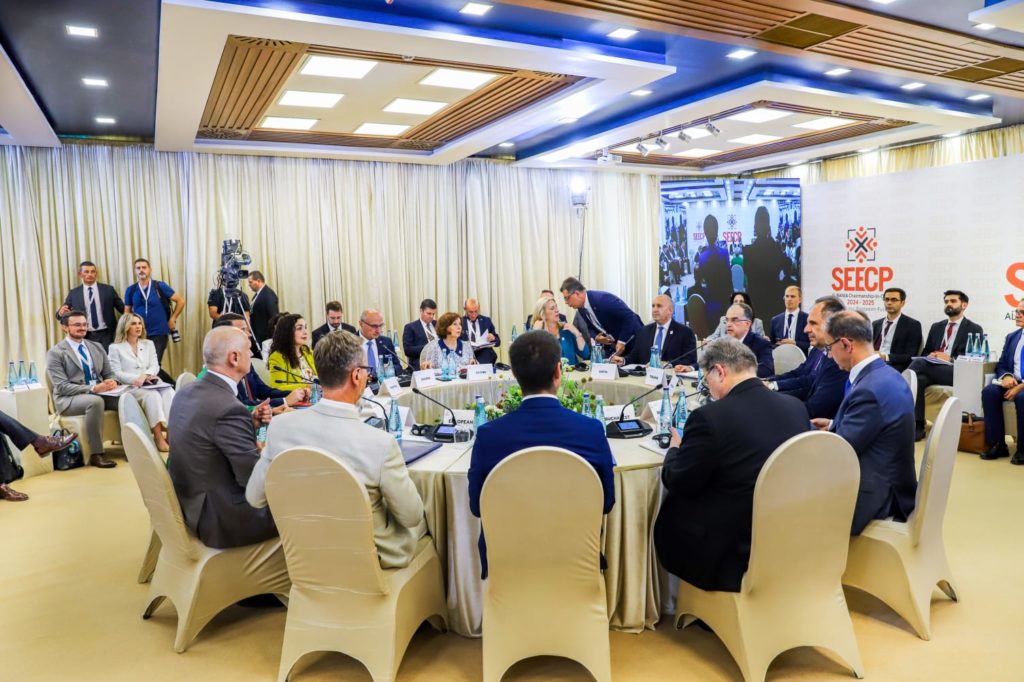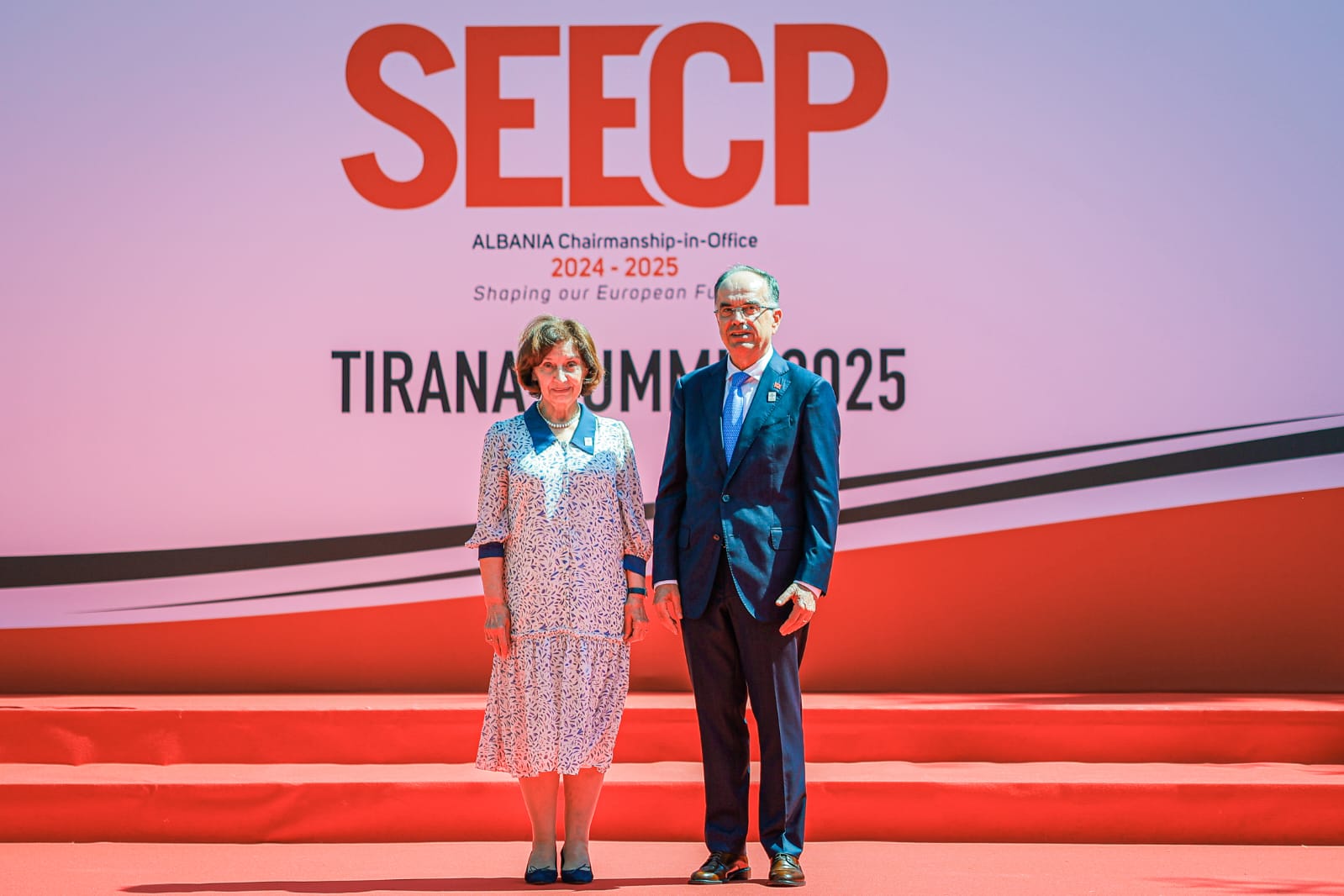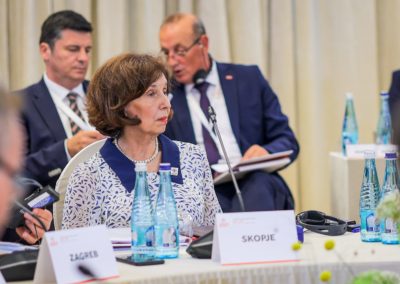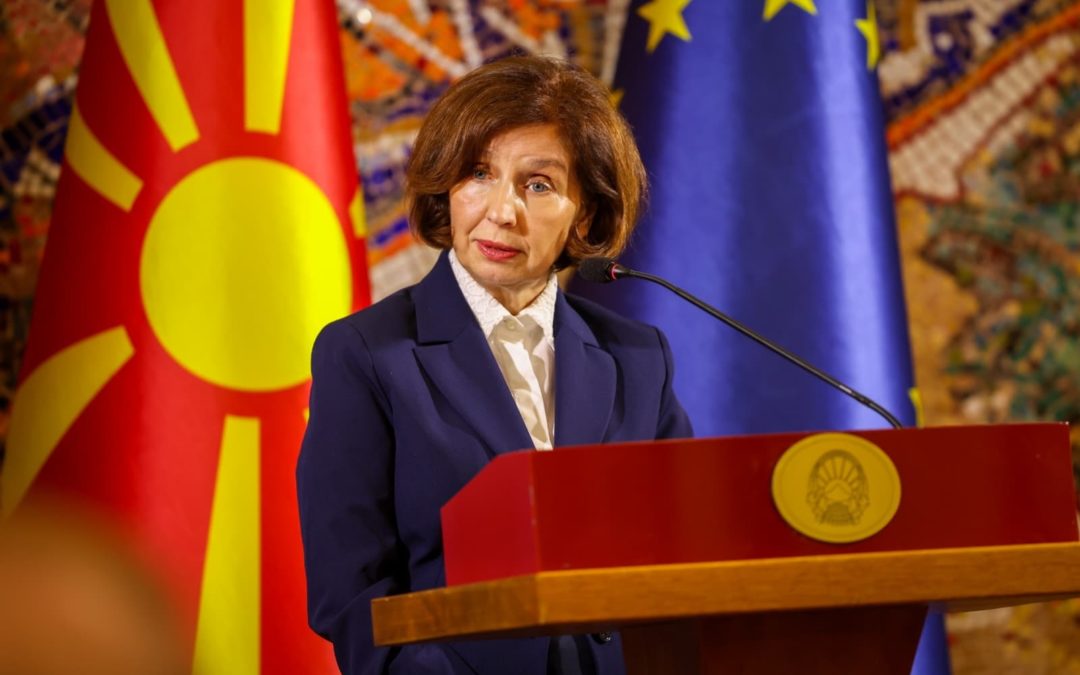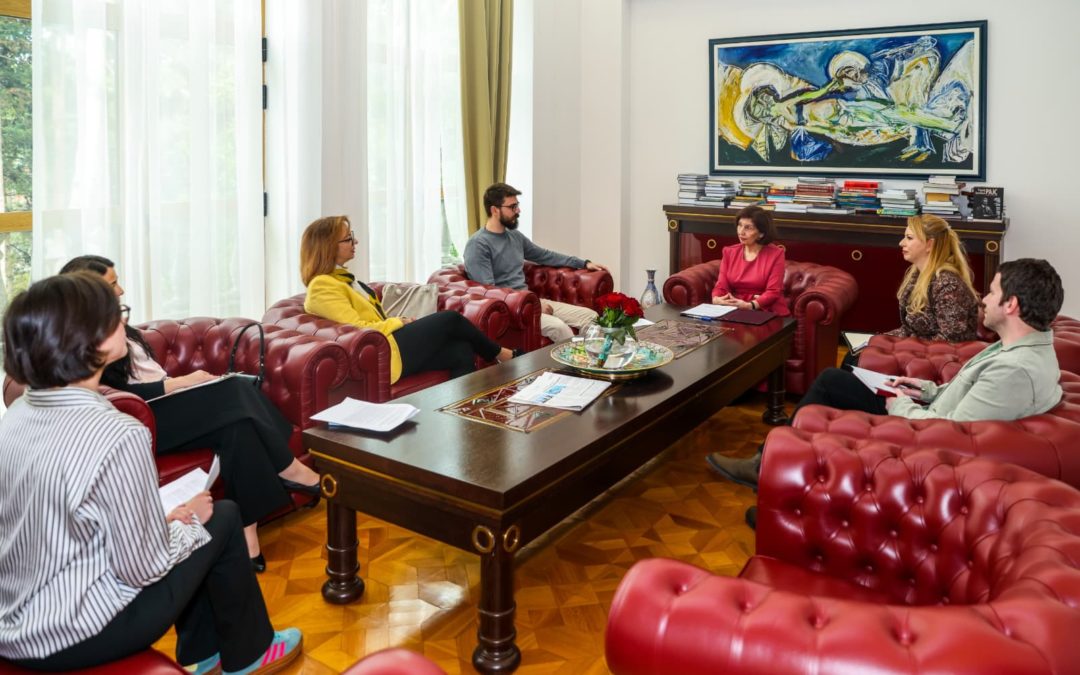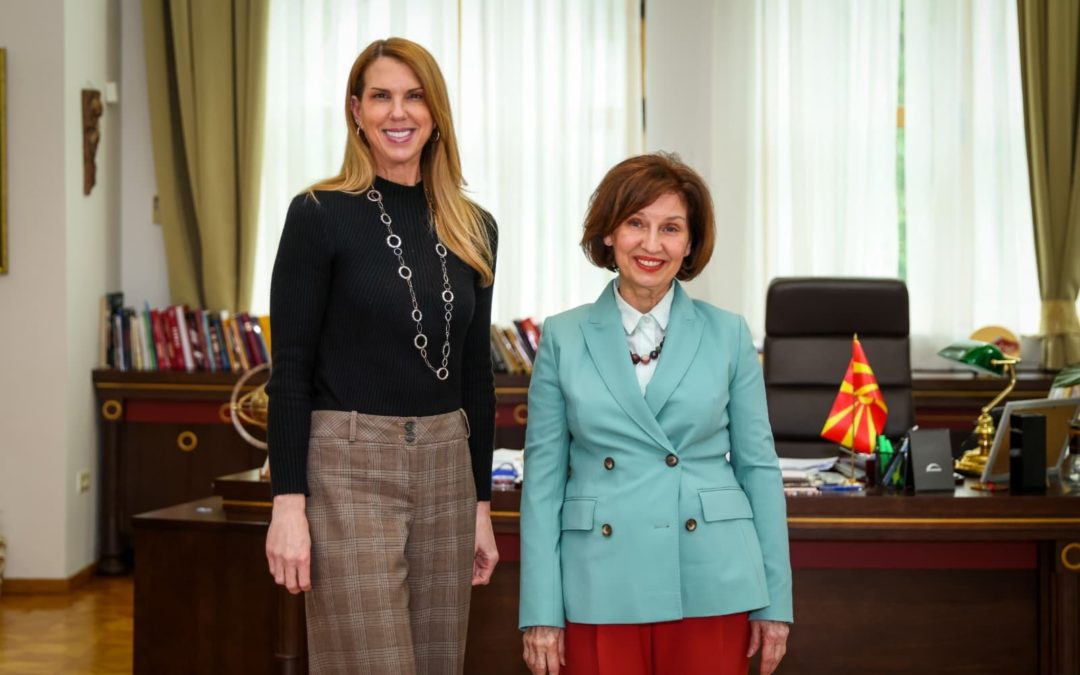President Gordana Siljanovska-Davkova addressed the Summit of Heads of State and Government of the participating countries of the South East European Cooperation Process (SEECP) in Tirana and pointed out that in conditions of dramatic geopolitical change, with less and less multilateralism and more and more multi-polarity, with war on the soil of Europe – integration is urgent geopolitical and security imperative for the European Union.
She emphasized that the responsibility of the member states of the region is particularly important, as they should be drivers of enlargement, not a source of blockages that undermine the credibility of the Union.
Pointing out that regional cooperation needs to be improved and that we focus on key issues – from brain drain to climate change, the President said that the region must be proactively supported so that we are not reduced to a geopolitical and geo-economic periphery.
Siljanovska-Davkova added that we need improved infrastructure, energy and digital connectivity in order for the region to be more competitive in the wider European and global market.
Expressing gratitude for the regional solidarity expressed through the selfless care of those injured in the tragic fire in Kocani, she noted that the opening of health facilities for injured Macedonian citizens, as well as the activation of the European Civil Protection Mechanism, manifested sincere friendship, neighborly care and humanity in one of the most tragic contemporary events for the country.
She pointed out that the path to the European future leads through cooperation and solidarity, but stressed that this path is not without obstacles: a serious obstacle arises from the old prejudices in some European centers that still see the Balkans as an unstable periphery, composed of states mired in conflicts, self-blockades and mutual sabotage.
Stressing that an even more serious obstacle is the bilateralization of the integration process by the Balkan neighbors themselves, through the abuse of the right of veto, identity conditioning and historical revisionism, she assessed: these actions not only slow down the process of European integration, but also reinforce stereotypes that the Balkans are not ready for Europe.
Stressing that candidates for membership, instead of solidarity and a fair process, are increasingly facing obstructions due to bilateral issues, the President assessed that instead of Europeanization of the Balkans – we are witnessing a dangerous trend of Balkanization of the European Union and stressed that this must change, and for the good of all.
